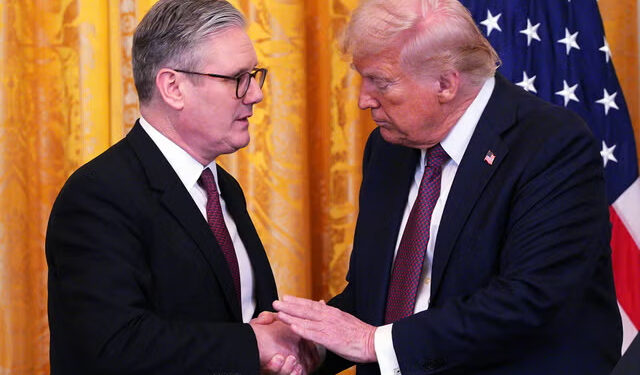In a landmark move aimed at bolstering intra-African trade and confronting the challenge of food insecurity, a coalition of commodity exchanges across the continent has united to establish the AfCFTA Association of Commodity Exchanges under the AfCFTA Guided Trade Initiative.
This pioneering development, unveiled at the Intra-Africa Trade Fair 2023 in Cairo, Egypt, signifies a collective commitment to leverage the potential of structured marketplaces. The goal is to seamlessly connect farmers, producers, and buyers, thereby stimulating economic growth and addressing the pressing issue of food insecurity.
The AfCFTA Association of Commodity Exchanges emerges as a strategic player in the realization of the African Continental Free Trade Area (AfCFTA), a flagship endeavor of the African Union aspiring to forge a unified market for goods and services throughout the continent.
By facilitating more efficient and transparent trade in agricultural commodities, the association is poised to play a pivotal role in achieving the ambitious objectives set forth by the AfCFTA.
This collaborative venture among Africa’s commodity exchanges underscores a collective acknowledgment of the imperative to pool resources in tackling shared challenges. The platform’s ability to bridge information gaps, optimize logistics, and enhance access to finance is pivotal in dismantling barriers hindering intra-African trade.
The association’s explicit focus on combatting food insecurity assumes significance against the backdrop of prevailing challenges in various regions of the continent. By championing structured marketplaces, the association not only fosters a more stable and resilient food supply chain but also catalyzes broader economic development by promoting agricultural productivity and facilitating a more integrated regional economy.
Bold Targets Articulated By The Association
The bold targets articulated by the association, in line with UNCTAD estimates, signal the transformative potential of this initiative. Successful realization of heightened intra-African trade and a substantial reduction in the continent’s trade deficit could usher in profound positive impacts on the economic landscape of African nations.
Yet, as with any financial initiative of this magnitude, the key to success lies in effective implementation, sustained collaboration, and ongoing support. Addressing challenges related to infrastructure, regulatory frameworks, and capacity building will be imperative for the enduring success of the AfCFTA Association of Commodity Exchanges and, by extension, the broader objectives of the AfCFTA.
The African Continental Free Trade Area (AfCFTA) stands as a historic and transformative initiative aimed at fostering economic integration and development across the African continent. Conceived as a means to unlock the vast economic potential of the region, the AfCFTA is a flagship project of the African Union (AU) that seeks to create a single market for goods and services, facilitate the free movement of people, and spur industrialization and economic diversification.
Formally launched on January 1, 2021, the AfCFTA represents a collective effort by African nations to overcome historical economic fragmentation and promote intra-Africa trade. The agreement is built on the principles of inclusivity and collaboration, with the overarching goal of boosting economic growth, creating jobs, and enhancing competitiveness on the global stage.
One of the key objectives of the AfCFTA is to eliminate or significantly reduce tariff barriers on 90% of goods traded among African countries. By doing so, the agreement aims to promote a more seamless flow of goods and services, encouraging businesses to explore new markets and enhancing the overall economic interconnectedness of the continent. This reduction in trade barriers is expected to contribute to the creation of a larger, more integrated market that can attract increased foreign investment.
In addition to tariff reductions, the AfCFTA addresses non-tariff barriers and aims to harmonize trade rules and regulations across member states. This harmonization process seeks to streamline customs procedures, reduce bureaucratic hurdles, and create a more conducive environment for businesses to operate across borders. The standardization of rules and regulations is essential for building trust among member states and ensuring a smooth and predictable trade environment.
The AfCFTA’s commitment to the free movement of people is another noteworthy aspect. By facilitating visa-free travel and the right of establishment for citizens of member states, the agreement aims to enhance people-to-people interactions, encourage cross-border investments, and foster a sense of African identity and unity.
READ ALSO: Ofankor-Nsawam Road Expansion Project; Residents Issue President A 14-Day Ultimatum



















